Unlocking the Secrets of Tianmu Lake: Nature’s Breathtaking Canvas in China
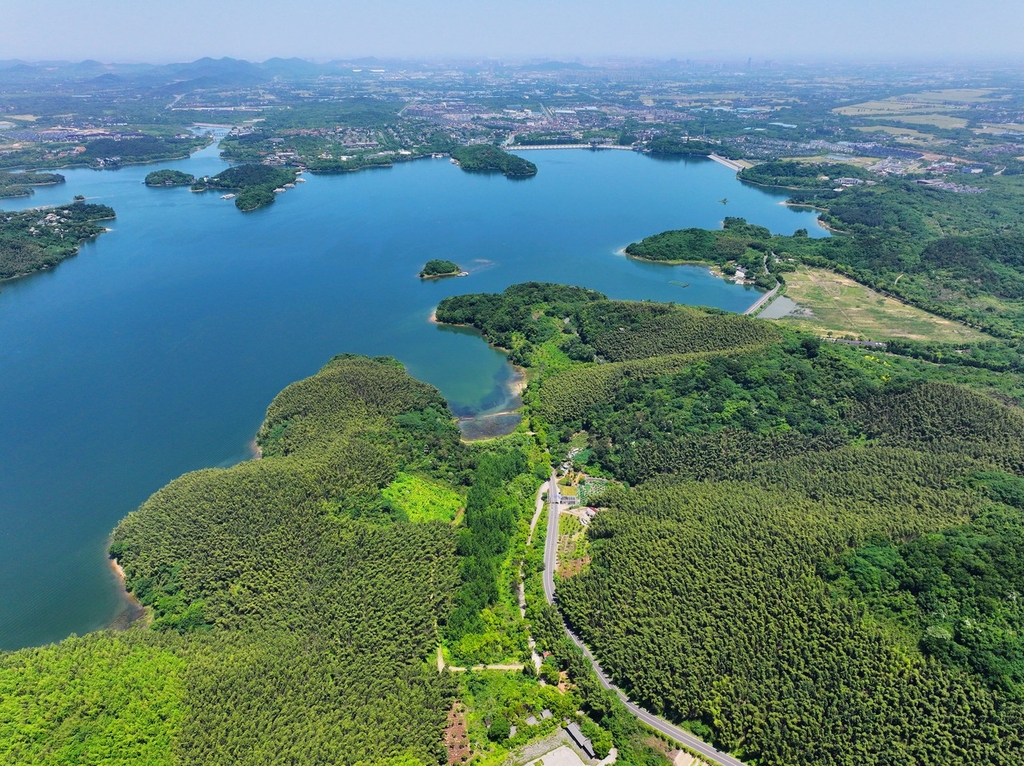
An Essential Guide to Visiting Tianmu Lake
Nestled in the picturesque Jiangsu province of China, Tianmu Lake (天目湖) is not just a serene body of water; it is a vibrant tapestry of natural beauty and cultural richness. This vast reservoir, surrounded by lush mountains and dotted with charming resorts, is renowned for its breathtaking vistas and unique ecosystem. One of its most captivating features is the opportunity to explore the diverse flora and fauna that flourish in the area, making it a paradise for nature enthusiasts and photographers alike.
In this guide, we will delve into the essential experiences that Tianmu Lake has to offer. From tranquil boat rides across the shimmering waters to exhilarating hikes through verdant trails, there’s something for everyone. Discover the nearby hot springs that beckon travelers to unwind, and explore the local tea culture that adds a distinct flavor to your visit. We’ll also provide practical tips on how to navigate the region, the best times to visit for optimal weather, and recommendations for accommodations that suit various budgets.
Prepare to embark on an unforgettable journey to Tianmu Lake, where nature’s splendor meets rich local traditions, promising a getaway that rejuvenates the spirit and ignites the senses.
In This Guide
- An Essential Guide to Visiting Tianmu Lake
- The Rich History and Legends of Tianmu Lake
- Main Highlights: What You Absolutely Can’t Miss
- Planning Your Visit: A Practical Guide
- Tickets: Prices, Booking, and Tips
- How to Get There: A Complete Transportation Guide
- Local Cuisine and Accommodation Nearby
- Frequently Asked Questions
- Final Thoughts on Your Trip
The Rich History and Legends of Tianmu Lake
A Glimpse into the Past: The Origins of Tianmu Lake
Nestled in the lush landscapes of Liyang, Jiangsu Province, Tianmu Lake boasts a history that intertwines with the cultural tapestry of China. Originally a reservoir constructed in the early 1960s, it was designed to support agricultural irrigation and hydroelectric power. Over the decades, this functional body of water has transformed into a vibrant recreational area, attracting visitors from near and far.
The Evolution of a Scenic Retreat
As the years unfolded, Tianmu Lake evolved from a mere utility into a beloved scenic destination. In the late 20th century, the lake became a focal point for leisure and tourism, with the development of resorts and recreational activities around its shores. Today, it stands as a testament to both nature’s beauty and humanity’s creativity, offering visitors a picturesque blend of adventure and relaxation.
Legends of Love and Harmony
Tianmu Lake is steeped in local legends that whisper tales of love and harmony. One of the most captivating stories is that of a beautiful fairy named Mu. According to folklore, she descended to the lake to enjoy its tranquility and fell in love with a mortal man who often fished there. Their love was pure, but their worlds were destined to remain apart. In a bittersweet ending, Mu returned to the heavens, leaving behind a shimmering reflection on the lake that glows during full moons—a symbol of their eternal love.
Another enchanting legend speaks of the lake’s name. “Tianmu” translates to “Heavenly Eye,” and it is said that an ancient emperor once gazed into its waters, hoping to glimpse the future. Instead, he saw the harmonious balance of nature and humanity, inspiring him to lead with wisdom and compassion. This tale resonates deeply with visitors, inviting them to reflect on the interconnectedness of all life.
Cultural Significance: A Spiritual Haven
Throughout history, Tianmu Lake has been more than just a retreat; it has been a spiritual haven. The surrounding mountains and tranquil waters are said to hold healing properties, drawing seekers of peace and rejuvenation. Local traditions celebrate this connection, with festivals held to honor the spirits of the lake and the lush landscapes that cradle it. The annual “Tianmu Lake Lotus Festival” showcases the area’s natural beauty, featuring vibrant lotus flowers that symbolize purity and enlightenment, further enriching the lake’s cultural heritage.
Modern-Day Reflections
Today, Tianmu Lake stands as a harmonious blend of history, legend, and natural beauty. Visitors can explore scenic trails, indulge in hot springs, and connect with the rich tapestry of stories that define this enchanting locale. As you stroll along the shores of Tianmu Lake, take a moment to listen closely—perhaps the echoes of the past and the whispers of the legends will guide you to a deeper understanding of this majestic place.

Tianmu Lake.
Main Highlights: What You Absolutely Can’t Miss
Scenic Boat Ride Across Tianmu Lake
Embark on a serene boat ride and soak in the breathtaking vistas of Tianmu Lake. This tranquil journey allows you to glide over the crystal-clear waters while surrounded by lush greenery and distant mountains. Make sure to bring your camera, as every angle presents a postcard-worthy shot. For the best experience, plan your ride during early morning or late afternoon to catch the golden hues of sunrise or sunset. Boat rentals are readily available near the main entrance, and prices are typically reasonable.
Tianmu Lake Hot Springs
A visit to Tianmu Lake wouldn’t be complete without indulging in its renowned hot springs. Nestled in the scenic surroundings, these natural thermal baths offer a perfect escape for relaxation and rejuvenation. The warm, mineral-rich waters are believed to have therapeutic properties, making it an ideal spot for weary travelers. Most hot spring resorts provide stunning views of the lake, so be sure to book a private room for an intimate experience. It’s best to visit during the cooler months when the contrast of the warm water against the brisk air is particularly delightful.
Hiking Trails
For adventure enthusiasts, the hiking trails around Tianmu Lake present an excellent opportunity to explore the area’s natural beauty. Trails of varying difficulty levels wind through dense forests and along the lakeshore, providing ample chances to spot local wildlife. The most popular route leads to a viewpoint that overlooks the entire lake, offering an unforgettable panoramic scene. Wear comfortable shoes and bring plenty of water, as some trails can be steep and require a bit of stamina.
Tea Culture Experience
Immerse yourself in the rich tea culture of the region with a visit to one of the nearby tea plantations. Engage in a hands-on tea-picking experience and learn about the traditional methods of tea production. Many plantations offer guided tours that include tastings of various local teas, providing insight into their distinct flavors and health benefits. This is a perfect way to connect with the local culture and take home some delightful souvenirs.
Exploring Longxing Island
Longxing Island is a hidden gem within Tianmu Lake that offers a unique blend of tranquility and natural beauty. Accessible by boat, this small island is dotted with picturesque landscapes, tranquil walking paths, and quaint picnic spots. Spend a leisurely afternoon wandering through its serene environment or enjoy a peaceful moment by the water’s edge. Be sure to check the boat schedule to plan your visit, as trips may be limited in the off-peak seasons.
Culinary Delights
No trip to Tianmu Lake is complete without savoring the local cuisine. The area is known for its fresh lake fish and a variety of dishes featuring seasonal ingredients. Restaurants along the lakeside offer both traditional Chinese meals and fusion options, all while providing stunning views of the water. For a more authentic experience, try the local specialty, “Tianmu fish,” often served steamed or in a hot pot. To avoid peak dining hours, consider making a reservation in advance or visiting during lunch for a more relaxed atmosphere.
Wildlife Watching
Tianmu Lake is not just a beautiful destination; it also serves as a refuge for numerous bird species, particularly during migratory seasons. Grab a pair of binoculars and take a leisurely stroll along the designated bird-watching areas. Early mornings are the best time to catch a glimpse of egrets and herons, making it a perfect start to your day. Ensure to follow marked paths to avoid disturbing the wildlife and enjoy the serenity of nature.
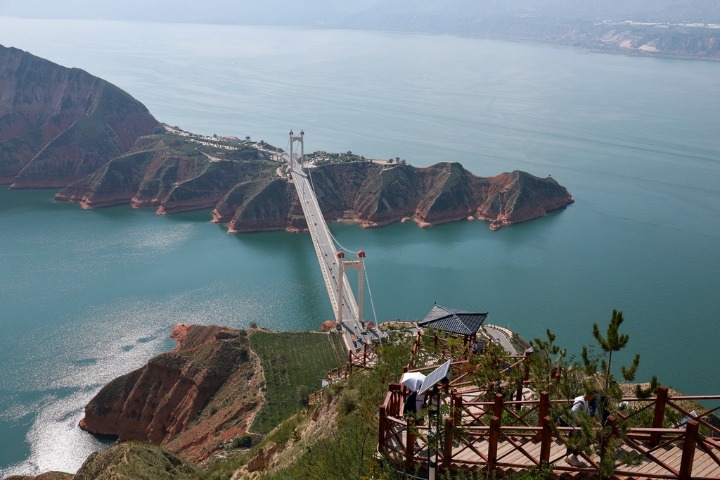
Tianmu Lake.
Planning Your Visit: A Practical Guide
Best Time to Visit
Tianmu Lake is a beautiful destination that transforms with the seasons. The best times to visit are during spring (April to June) and autumn (September to November) when the weather is mild and the natural scenery is at its most picturesque. Summers can be extremely hot and humid, making outdoor activities less enjoyable, while winters may bring cooler temperatures that could hinder exploration. Plan your visit for a comfortable experience while enjoying the lush greenery or the vibrant fall colors.
Recommended Itinerary
Day 1: Arrival and Exploration
– Morning: Arrive at Tianmu Lake and check into your chosen accommodation. After settling in, start your day with a leisurely walk along the lakeside, soaking in the tranquil views.
– Afternoon: Enjoy a boat ride on the lake, which offers a unique perspective of the surrounding landscape. Consider visiting the nearby tea museum to learn about the local tea culture.
– Evening: Dine at a local restaurant, savoring regional dishes, particularly the famous Liyang smoked duck.
Day 2: Outdoor Adventures
– Morning: Start early with a hike on one of the many trails that offer stunning views of the lake and surrounding mountains. The trails vary in difficulty, so choose one that suits your fitness level.
– Afternoon: Unwind at one of the nearby hot springs—perfect for relaxation after a morning of hiking.
– Evening: Explore the local market for souvenirs and enjoy a casual dinner.
Photography Tips
- Golden Hour: The best times for photography are during sunrise and sunset when the light is soft and enhances the natural beauty of the lake.
- Wide-Angle Lens: Bring a wide-angle lens to capture the expansive views of the lake and mountains, allowing you to encompass the breathtaking scenery in one shot.
- Nature Focus: Don’t overlook the details—macro shots of local flora and fauna can add depth to your photo collection.
- Reflections: Try to capture reflections of the mountains on the lake’s surface, especially on calm days. This can create stunning, symmetrical images.
- Local Culture: Consider photographing local activities, such as tea picking or fishing, to capture the essence of life around the lake.
What to Wear
Dress comfortably and appropriately for the season. Here are some suggestions:
- Spring/Autumn: Light layers work best since temperatures can fluctuate. A light jacket or sweater is advisable for cooler evenings.
- Summer: Opt for breathable fabrics to stay cool. Don’t forget a hat and sunglasses to protect against the sun. Comfortable walking shoes are essential for exploring the trails.
- Winter: Wear a warm coat, gloves, and a scarf, especially if you plan to hike. Waterproof shoes are also recommended, as trails can be muddy.
Insider Tips
- Early Start: Arrive early to avoid crowds, especially on weekends and during public holidays. This will enhance your experience and provide better opportunities for photography.
- Local Cuisine: Don’t miss trying Liyang’s specialties, particularly the smoked duck and local teas. Ask locals for their favorite eateries to find hidden gems.
- Stay Hydrated: If you plan to hike or partake in outdoor activities, carry water with you to stay hydrated, especially during warmer months.
- Explore Beyond the Lake: Consider visiting nearby attractions, such as the Nashan Bamboo Sea, which offers stunning landscapes and additional hiking opportunities.
- Cultural Events: Check local calendars for any festivals or events happening during your visit. Engaging in these can deepen your understanding of local culture and traditions.
With this practical guide, you’re all set to explore the enchanting Tianmu Lake and create unforgettable memories amidst its stunning natural beauty.
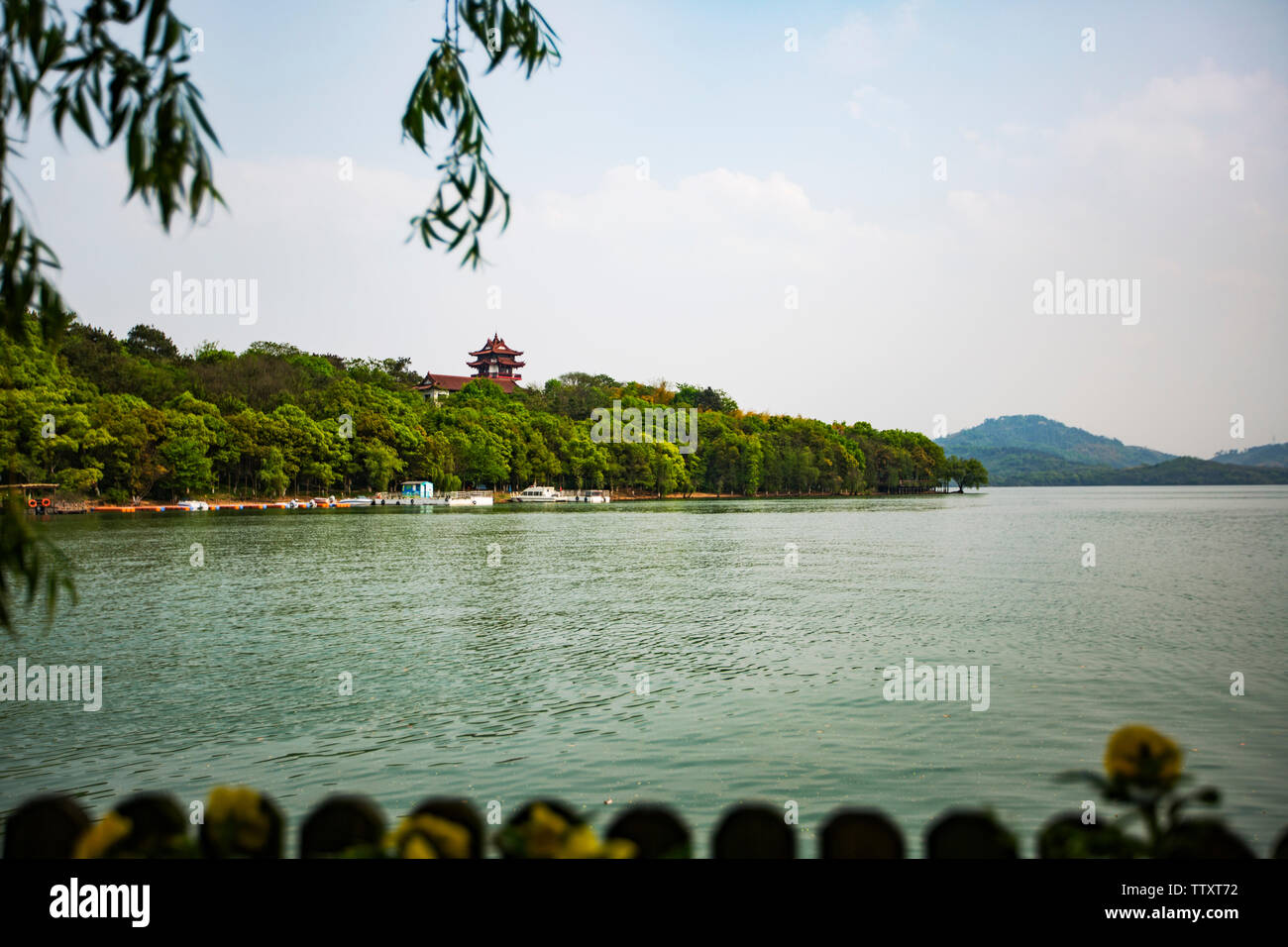
Tianmu Lake.
Tickets: Prices, Booking, and Tips
Visiting Tianmu Lake is a delightful experience, and knowing the ticketing options can help you plan your trip effectively. Below is a detailed breakdown of the ticket types, their prices, and what each ticket includes.
| Ticket Type | Price (CNY) | Includes |
|---|---|---|
| Adult Admission | 60 | Access to the Tianmu Lake Scenic Area |
| Child Admission (under 1.2m) | Free | Access to the Tianmu Lake Scenic Area |
| Student Admission | 30 | Access to the Tianmu Lake Scenic Area with valid ID |
| Senior Admission (over 65) | 30 | Access to the Tianmu Lake Scenic Area with valid ID |
Booking Information
To make the most of your visit to Tianmu Lake, it is advisable to book your tickets in advance, especially during peak seasons (spring and autumn) when the lake attracts larger crowds. Here are some tips for booking your tickets:
-
Online Reservations: You can purchase tickets through popular travel platforms such as Trip.com or directly on the official Tianmu Lake website. This ensures you secure your spot and avoid long queues.
-
Mobile Apps: Many Chinese travel apps offer ticket purchasing options, making it easy to book on the go. Check for user-friendly apps that provide English options if you’re not comfortable with Mandarin.
-
On-site Purchase: If you prefer buying tickets on the day of your visit, note that it can be busier, and tickets may sell out quickly, especially on weekends and holidays. Arriving early can help mitigate this risk.
-
Group Discounts: If you are traveling with a large group, inquire about group rates, which can sometimes provide discounts on your total ticket cost.
-
Consider Guided Tours: Some packages include tickets along with guided tours, meals, or transportation, which can enhance your experience and simplify logistics.
By planning ahead and securing your tickets in advance, you can focus more on enjoying the stunning views and relaxing activities that Tianmu Lake has to offer!
How to Get There: A Complete Transportation Guide
Accessing Tianmu Lake: Your Comprehensive Transportation Guide
Tianmu Lake, located in the enchanting city of Liyang in Jiangsu Province, is a stunning getaway for nature lovers and adventure seekers alike. Whether you’re planning a day trip or a longer stay, navigating your way to this scenic oasis is easier than you might think. Below, you’ll find all the essential information on how to reach the lake and get around the surrounding area.
From the Nearest Major City
Getting to Liyang:
1. From Nanjing:
– By Train:
– Duration: Approximately 2 hours.
– Cost: Around ¥60-¥100 (USD 9-15) for a second-class ticket.
– Details: Nanjing has several high-speed trains to Liyang that run frequently throughout the day. Check the China Railway website or local travel apps for schedules.
- By Bus:
- Duration: Approximately 3 hours.
- Cost: Around ¥50 (USD 7.50).
- Details: Buses depart from Nanjing South Bus Station to Liyang. The bus is a comfortable option, but be sure to check for the latest schedules.
2. From Hangzhou:
– By Train:
– Duration: Approximately 2.5 hours.
– Cost: Around ¥80-¥120 (USD 12-18).
– Details: High-speed trains from Hangzhou East Railway Station to Liyang are available. Early booking is recommended to secure your seat.
- By Car:
- Duration: Approximately 2 hours.
- Cost: Variable depending on gas prices and tolls.
- Details: If you choose to drive, take the G25 highway, which offers a scenic route through the countryside.
3. From Shanghai:
– By Train:
– Duration: Approximately 3-4 hours.
– Cost: Around ¥120-¥180 (USD 18-27).
– Details: Direct trains from Shanghai Hongqiao Railway Station to Liyang are available. It’s advisable to book tickets in advance, especially during peak travel seasons.
4. From Wuxi:
– By Train:
– Duration: Approximately 1 hour.
– Cost: Around ¥30-¥50 (USD 4.50-7.50).
– Details: Regular trains connect Wuxi to Liyang, making it a convenient option for day trips.
Getting Around the Scenic Area
Once you arrive at Tianmu Lake, getting around the scenic area is straightforward. Here are your options:
1. Public Transport:
– Buses: Local buses run between major attractions around the lake. Fares are inexpensive, typically around ¥2-¥5 (USD 0.30-0.75) per ride. Buses can be infrequent, so check the schedule in advance or be prepared for some waiting.
2. Bicycle Rentals:
– Cost: Approximately ¥30-¥50 (USD 4.50-7.50) per day.
– Details: Rent a bicycle to explore the scenic spots around the lake and surrounding trails at your own pace. Various rental shops are available near the main entrance.
3. Walking:
– Details: Many areas around Tianmu Lake are pedestrian-friendly. Enjoy leisurely walks along the lakeside paths, which offer breathtaking views and access to several attractions, including tea gardens and hiking trails.
4. Taxis and Ride-Sharing:
– Cost: Generally affordable, with fares starting around ¥10 (USD 1.50) for short distances.
– Details: Taxis are readily available around the lake. For ease, consider using ride-sharing apps like Didi Chuxing to get around conveniently.
5. Guided Tours:
– Details: If you prefer a structured experience, numerous tour operators offer packages that include transportation and guided visits to key attractions around Tianmu Lake. Prices vary based on the itinerary and number of participants.
Conclusion
Getting to Tianmu Lake and exploring its beautiful surroundings can be a delightful adventure. Whether you choose to travel by train, bus, or car, the journey offers a glimpse into the stunning landscapes of Jiangsu Province. Once you arrive, a variety of transportation options ensures that you can fully enjoy the serene beauty of one of China’s hidden gems. So pack your bags, grab your camera, and get ready for an unforgettable experience at Tianmu Lake!
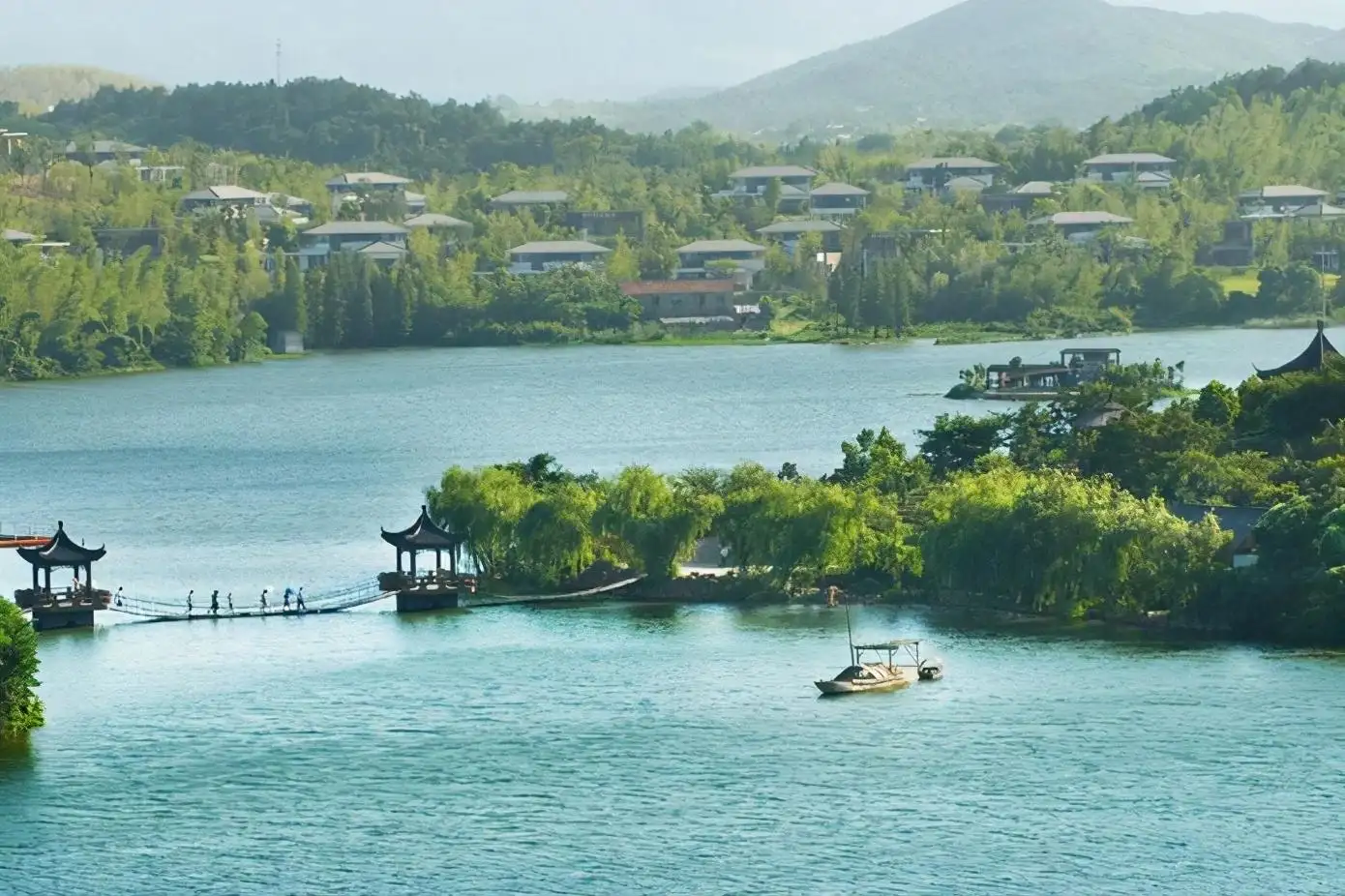
Tianmu Lake.
Local Cuisine and Accommodation Nearby
Tianmu Lake, nestled in the scenic region of Liyang, is not just a feast for the eyes with its stunning landscapes and outdoor activities; it’s also a delightful destination for food enthusiasts and travelers seeking comfortable accommodations.
Local Cuisine
When you visit Tianmu Lake, don’t miss the opportunity to savor some of the local culinary treasures:
-
Liyang Smoked Duck (溧阳烟熏鸭)
This dish is a must-try for any visitor. The duck is marinated with a mix of spices, then smoked to perfection. The result is a tender, flavorful meat with a smoky aroma that pairs beautifully with steamed rice. -
Bamboo Shoots with Soy Sauce (酱油竹笋)
Harvested from the local bamboo forests, these young bamboo shoots are cooked in a savory soy sauce, bringing out their natural crunch and delicate flavor. It’s a simple yet delicious dish that highlights the fresh, local ingredients. -
Fried Tofu with Spicy Sauce (香辣豆腐)
A popular choice among locals, this dish features crispy fried tofu drizzled with a spicy and tangy sauce. The contrast of textures and flavors makes it an enticing appetizer or side dish. -
Liyang Rice Wine (溧阳米酒)
No meal is complete without a glass of this locally brewed rice wine. It’s sweet and slightly effervescent, making it a perfect complement to the savory dishes of the region.
Accommodation Options
Finding the right place to stay near Tianmu Lake can enhance your travel experience. Here are some recommendations across different budget ranges:
-
Luxury:
Tianmu Lake Resort Hotel – This upscale resort offers stunning views of the lake, alongside modern amenities such as a spa, outdoor pools, and fine dining options. It’s perfect for travelers looking to indulge in a luxurious experience while enjoying nature. -
Boutique:
Liyang Oaks Boutique Hotel – With its unique design and personalized service, this boutique hotel provides a charming atmosphere that reflects the local culture. Guests can enjoy cozy rooms, a lovely garden, and easy access to the lake’s activities. -
Budget:
GreenTree Inn Liyang – For budget-conscious travelers, this chain hotel offers comfortable, clean accommodations at an affordable price. It’s conveniently located, making it easy to explore the surrounding attractions without breaking the bank. -
Guesthouse:
Tianmu Lake Homestay – For a more intimate experience, consider staying at a local guesthouse. Here, you can enjoy warm hospitality and home-cooked meals, giving you a true taste of local life while being just steps away from the lake.
Whether you’re seeking culinary adventures or a cozy place to rest, Tianmu Lake has something to offer every traveler. Enjoy the vibrant flavors and comfortable accommodations as you explore this beautiful destination!
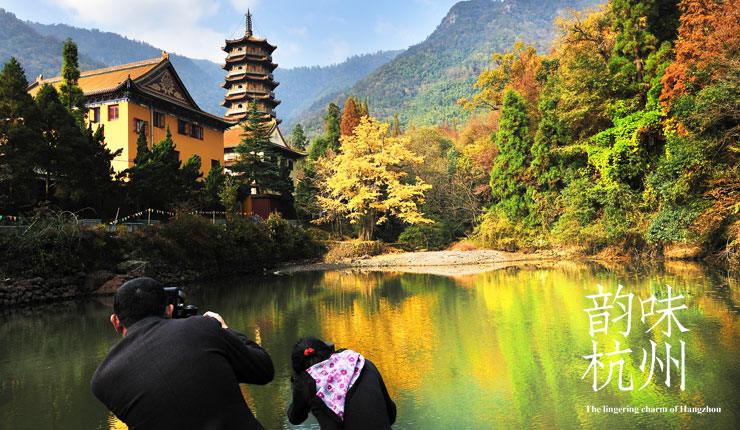
Tianmu Lake.
Frequently Asked Questions
Frequently Asked Questions About Tianmu Lake
1. Is Tianmu Lake suitable for children and the elderly?
Yes, Tianmu Lake is a family-friendly destination with many activities that cater to all ages. The trails are generally well-maintained, making them accessible for both children and the elderly. However, if you’re planning to hike, choose easier routes and ensure that everyone is comfortable with the walking distance.
2. Are there English signs and information available?
While most of the signage around Tianmu Lake is in Chinese, some areas, particularly tourist centers and major attractions, may have English translations. It’s advisable to download translation apps or have a phrasebook handy to help navigate and communicate.
3. How much time should I plan for a visit to Tianmu Lake?
To fully enjoy Tianmu Lake and its surroundings, plan for at least a day. This allows time for leisurely walks, enjoying the scenery, and participating in activities like hiking or visiting hot springs. If you wish to explore nearby attractions, consider extending your visit to two days.
4. What activities are available at Tianmu Lake?
Visitors can enjoy a variety of activities, including hiking, cycling, and boating. The area is also known for its hot springs, tea plantations, and scenic trails. Water sports like jet skiing are popular, as well as leisurely boat rides on the lake.
5. Is there an entrance fee to visit Tianmu Lake?
While access to the lake itself is free, there may be an entrance fee for the Tianmu Lake Scenic Area, which includes additional attractions and facilities. It’s advisable to check on current fees before your visit.
6. What is the best time of year to visit Tianmu Lake?
The ideal times to visit are during spring (March to May) and autumn (September to November) when the weather is mild and comfortable for outdoor activities. Summer can be hot and crowded, while winter may be chilly but offers a tranquil environment.
7. Are there accommodations near Tianmu Lake?
Yes, there are various accommodations ranging from hotels and resorts to guesthouses near Tianmu Lake. Many offer amenities that cater to families and are located close to the lake’s attractions.
8. How can I get to Tianmu Lake?
Tianmu Lake is accessible by car or public transportation from nearby cities such as Nanjing and Hangzhou. There are buses that run to Liyang, and from there, you can take a taxi or local transport to reach the lake. Be sure to check local schedules for the most convenient options.
Final Thoughts on Your Trip
As your journey around Tianmu Lake draws to a close, take a moment to reflect on the serene beauty and diverse activities that this enchanting destination offers. From the breathtaking views that stretch across the shimmering waters to the invigorating trails winding through lush bamboo forests, every corner of this area invites exploration and relaxation. Whether you indulged in the rejuvenating hot springs, marveled at the wildlife, or simply soaked in the tranquility of the landscape, each experience contributes to the rich tapestry of memories you’ll carry with you.
Tianmu Lake is not just a place; it’s an invitation to reconnect with nature and rejuvenate your spirit. As you leave, remember that the essence of travel lies in the moments that inspire us to appreciate the world beyond our doorstep. So, carry the serenity of Tianmu Lake with you and let it remind you that adventure and beauty await at every turn.